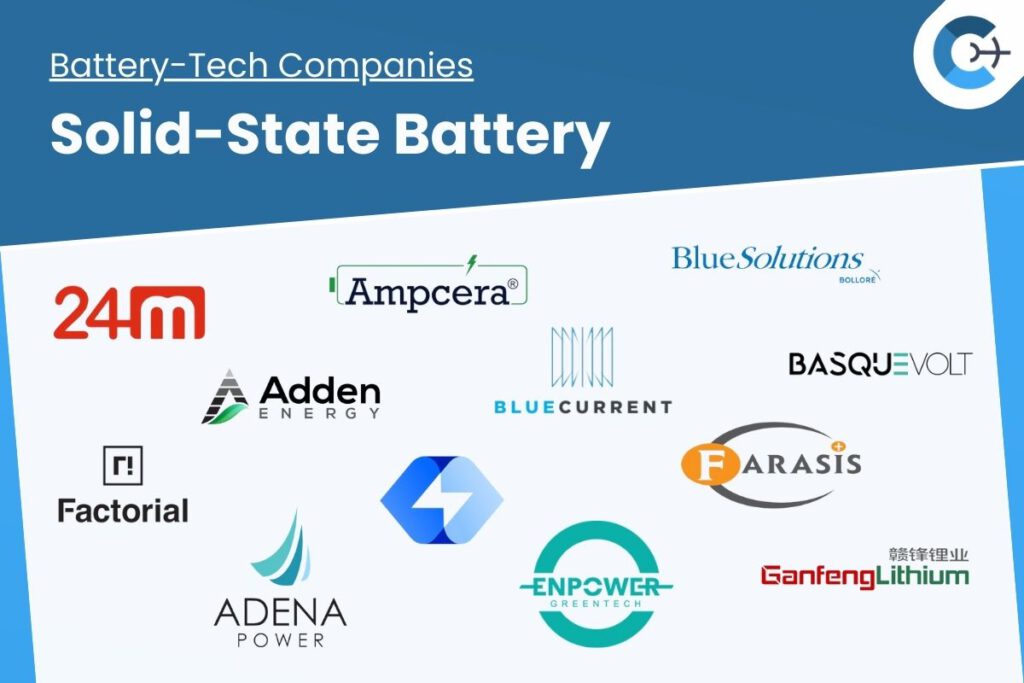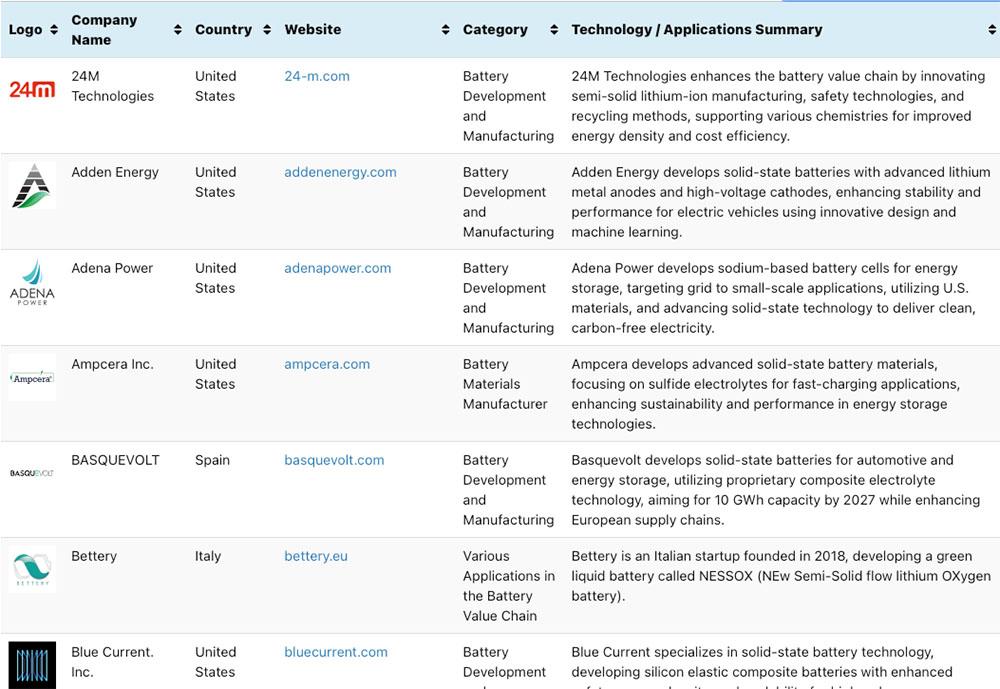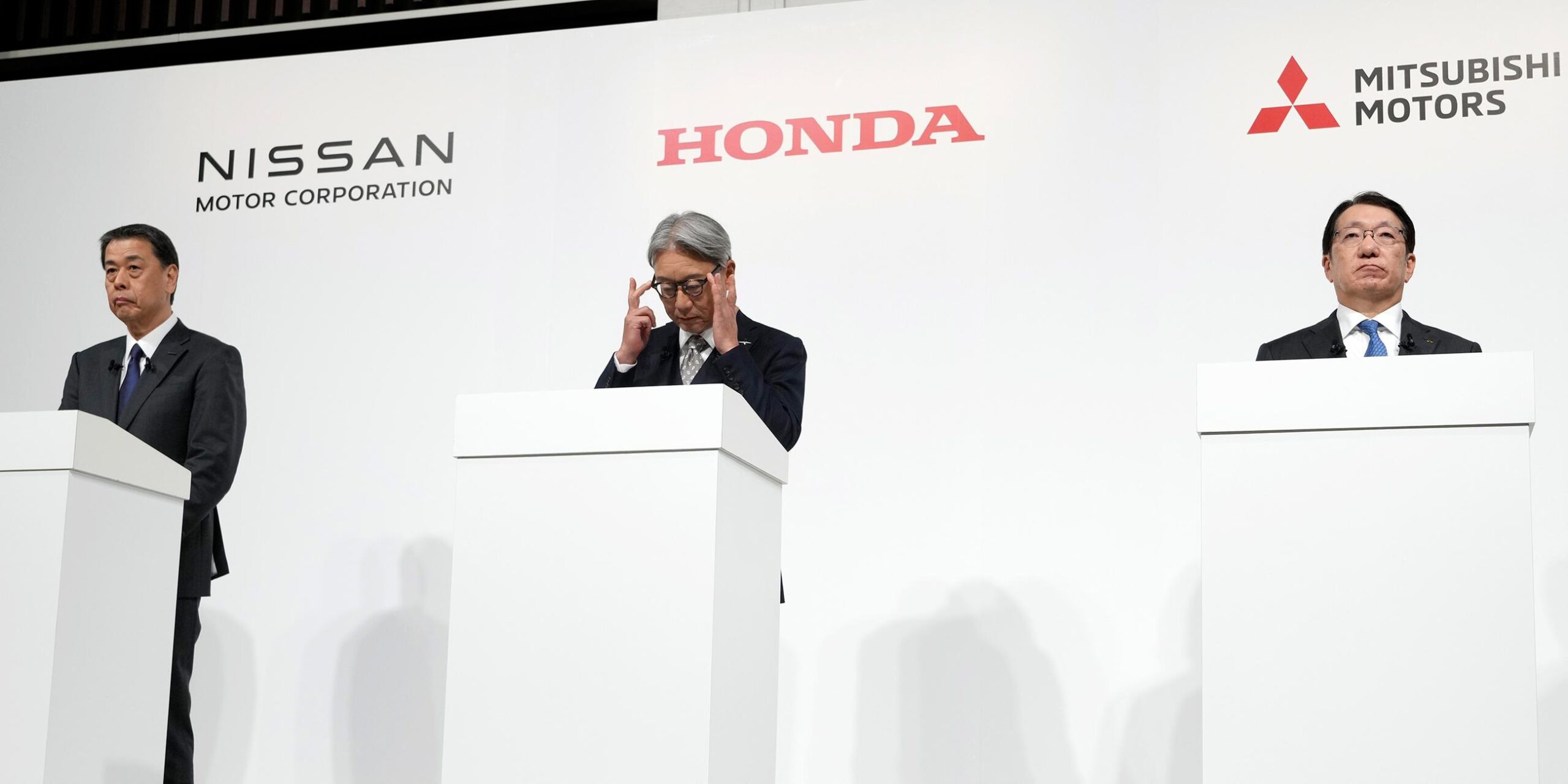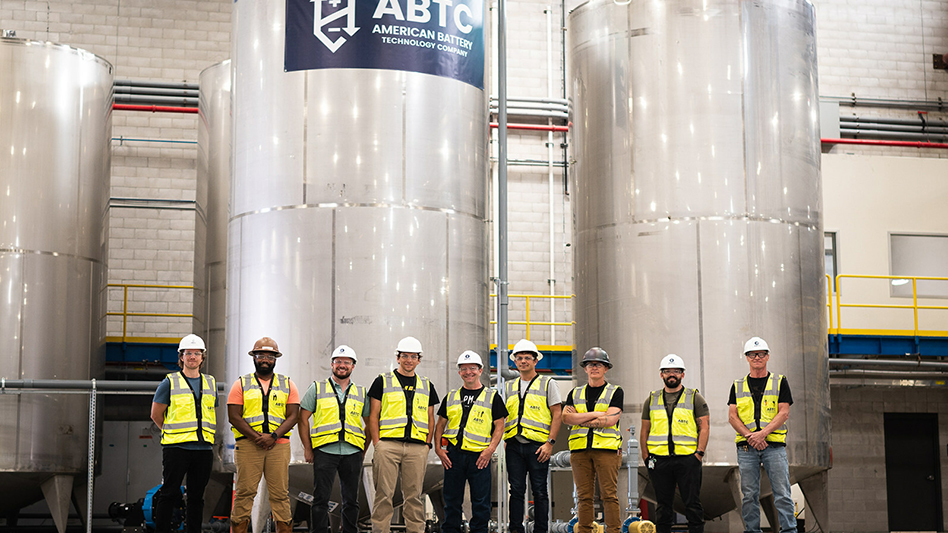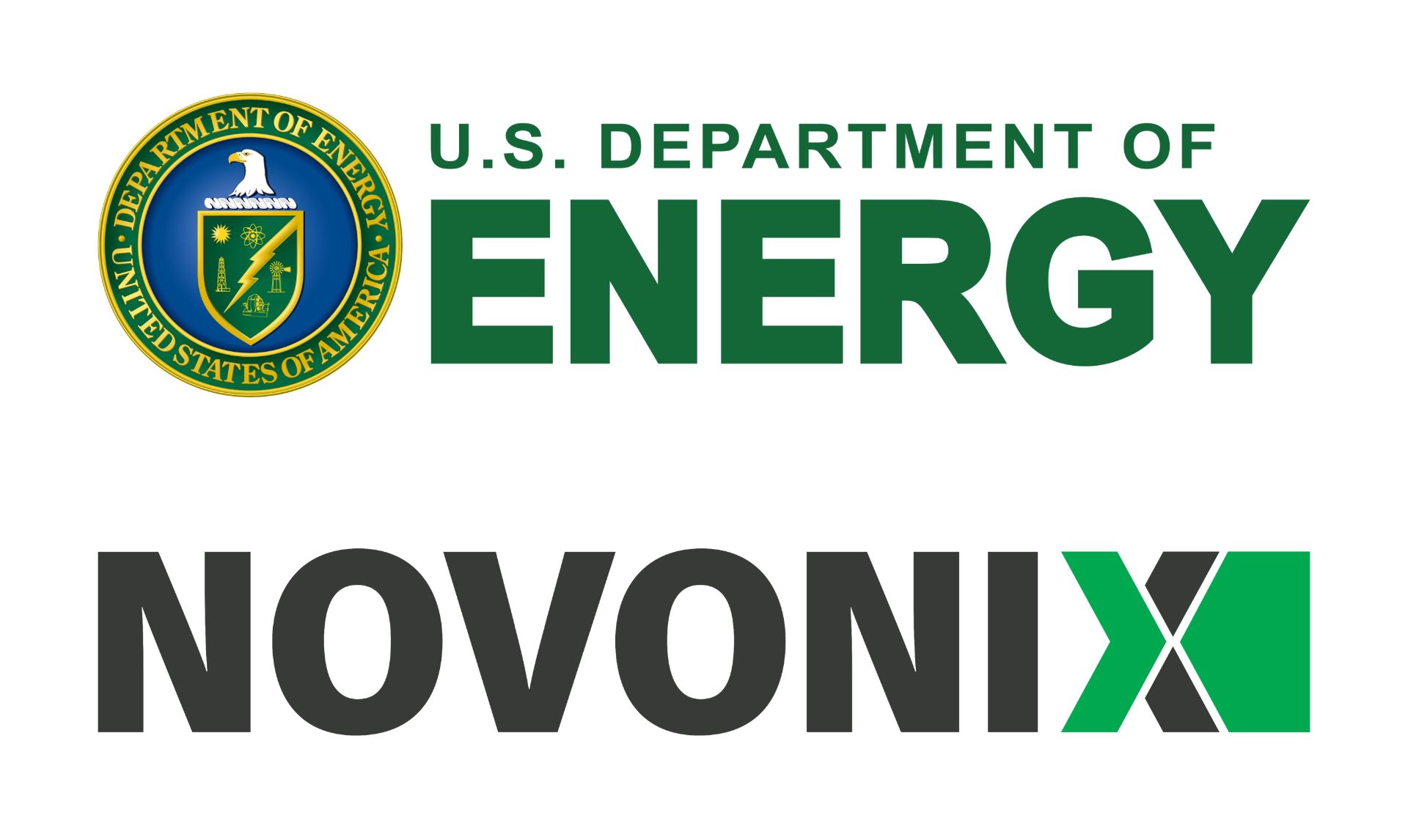Table of content
ToggleSolid-State Batteries
Solid-State Batteries (SSBs) represent a notable technological advancement in lithium-ion battery technology, distinguished by the replacement of traditional liquid or gel electrolytes with solid materials. This structural modification is intended to enhance multiple aspects of battery performance.
Solid-State Batteries are characterized by alternative electrolyte (solid-state electrolyte) materials, which can lead to increased energy density, improved safety due to reduced risk of leakage or fire, and the potential for faster charging. Additionally, SSBs can operate at higher voltages and are compatible with lithium metal anodes, further influencing their overall performance.
Classification of Solid-State Batteries by Electrolyte Material
Solid-State Batteries are primarily categorized into three types based on the solid electrolyte material employed:
Oxide Electrolyte Solid-State Batteries (LiOx-concept)
These batteries utilize materials such as Lithium Lanthanum Zirconium Oxide (LLZO), offering good structural stability and safety. While they exhibit lower ionic conductivity compared to some other materials, their high chemical stability and compatibility with lithium metal anodes are notable advantages.
Sulfide Electrolyte Solid-State Batteries
This category encompasses two variations:
- Sulfide Electrolyte with Lithium Anode (LiSu-concept), characterized by high ionic conductivity, suitability for high-power applications, and sensitivity to moisture.
- Sulfide Electrolyte with Silicon Anode (SiSu-concept), which leverages silicon anodes to potentially achieve higher energy densities in conjunction with sulfide electrolytes.
Polymer Electrolyte Solid-State Batteries (LiPo-concept)
Employing materials like Polyethylene Oxide (PEO), these batteries offer design flexibility and are suited for applications requiring lightweight or adaptable formats. However, they typically necessitate higher operating temperatures to ensure sufficient ionic conductivity.
Solid-State Development Challenges
Current major obstacles to the development of solid-state battery technology include cost, scalability, and the requirement to ensure long-term stability and performance across various environments. Ongoing research and development efforts are focused on addressing these hurdles, with the ultimate goal of fully realizing the potential of SSBs in the application of energy storage solutions. As the field continues to evolve, Solid-State Batteries are likely to play a significant role in shaping the future of this critical technology sector.
Solid-State Battery Company Overview (Part 1)
The following is an overview of companies and startups that are actively involved in advancing solid-state battery technology.

24M Technologies: Next-Gen Semi-Solid Battery Technology
Pioneering next-gen battery solutions, 24M Technologies enhances the battery value chain from its Cambridge, Massachusetts, headquarters. While bridging the gap to all-solid-state batteries, their innovative Semi-Solid Battery Technology reduces production costs by up to 40% and boosts energy density, safety, and recyclability.
Key applied technologies include the revolutionary Electrode-to-Pack (ETOP) Technology for streamlined assembly and Eternalyte Liquid Electrolyte, which boosts cycle life and rate capability in lithium-metal batteries.
Through partnerships with industry leaders like Volkswagen, 24M Technologies is scaling up production and exploring new chemistries for electric aviation, electric vehicles, and energy storage systems. Their transformative approach prioritizes safety, efficiency, and cost-effectiveness in battery development and manufacturing.
Website: 24-m.com

Adden Energy: Lithium metal anode technology
Adden Energy, headquartered in Waltham, Massachusetts, is a startup at the core of solid-state battery development for electric vehicles (EVs). Originating from pioneering research at Harvard University’s John A. Paulson School of Engineering and Applied Sciences, led by Associate Professor Xin Li, the company focuses on enhancing battery stability and performance through advanced lithium metal anodes and high-voltage cathodes.
Utilizing patented multi-electrolyte separators and innovative design supported by machine learning, Adden Energy aims to achieve extreme-fast charging (EFC) at room temperature—a significant bottleneck in EV adoption. Their lab prototypes have demonstrated charge rates as fast as three minutes with over 10,000 cycles in a battery’s lifetime.
Backed by a $5.15 million seed funding round led by Primavera Capital Group and holding an exclusive technology license from Harvard, the company is working to scale its technology from lab prototypes to commercially viable pouch cells. Adden Energy aspires to develop full-scale vehicle batteries within the next three to five years, potentially revolutionizing the EV industry.
Website: addenenergy.com

Adena Power: Sodium-based solid-state battery
Adena Power, based in Lewis Center, Ohio, is a specialized company that is committed to the development and commercialization of sodium-based solid-state battery systems, primarily targeting energy storage applications. The company’s overarching objective is to provide clean, carbon-free electricity by designing intrinsically safe batteries that utilize low-cost, domestically sourced, sustainable raw materials.
This approach addresses the inherent limitations of traditional lithium-ion batteries, offering enhanced energy storage solutions that prioritize safety and durability, characterized by the elimination of fire risks, extended duration energy storage, and reduced installation costs. Currently in the demonstration phase, with plans to launch its first product in early 2025, Adena Power leverages Nexceris’ ceramic processing expertise and is supported by multiple patent filings.
The company has received the People’s Choice Award at the National Renewable Energy Lab’s Industry Growth Forum, acknowledging its groundbreaking sodium battery solutions, and is advancing sodium-aluminum battery technology in collaboration with the U.S. Department of Energy and Pacific Northwest National Laboratory to more efficiently integrate renewable energy into the electrical grid at lower costs, ultimately positioning itself to make a substantial impact on the evolution of energy infrastructure.
Website: adenapower.com

Ampcera: Advanced solid-state battery materials
Ampcera Inc., headquartered in Milpitas, California, is an innovator in solid-state battery technology, focusing on the development of advanced materials for next-generation energy storage solutions. The company specializes in sulfide-based electrolytes and aims to enhance sustainability and performance, especially in fast-charging applications.
Ampcera has achieved a significant milestone by developing an all-solid-state battery (ASSB) that can charge to 80% state of charge in under 15 minutes at a peak C-rate of 4C, surpassing the U.S. Department of Energy’s fast-charging benchmark. In collaboration with FastLion Energy and Ford Motor Company, Ampcera is developing thermally modulated solid-state batteries (TMSSB) that enable ultra-safe fast charging for electric vehicles, even in cold weather conditions. These batteries utilize a high-capacity silicon anode and a high-voltage nickel-rich NMC cathode, achieving an impressive energy density of over 400 Wh/kg.
By using patented sulfide electrolyte materials and advanced technology in their products to maximize safety and maintain battery capacity during repeated rapid charging cycles. Ampcera strives to bring their fast charging ASSBs to the market with the support of a $2. 1 Million grant from the U.S Department of Energy (ARPA-E EVs4ALL program). Their aim is to establish collaborations and solidify their position as a significant contributor in the shift, towards eco-friendly energy solutions.
Website: ampcera.com

BASQUEVOLT: European solid-state technology developer
Located in Vitoria-Gasteiz in Spain’s Basque Country, BASQUEVOLT is a pioneering company that is driving the electric transformation forward. The company aims to become Europe’s leading name in solid-state lithium batteries, facilitating a future where electric vehicles, homes, and devices are the norm.
Leveraging over a decade of outstanding research by top talent at CIC energiGUNE—a leading energy storage research center in Europe—BASQUEVOLT’s innovative team has achieved exceptional battery performance through their proprietary composite electrolyte technology. They have successfully assembled 20Ah cells with an energy density of 450 Wh/kg, surpassing traditional lithium-ion batteries.
With mass production planned by 2027, BASQUEVOLT intends to produce an impressive 10 GWh of solid-state battery cells annually, with initial production lines commencing as early as 2025. Supported by the European Union’s EIT InnoEnergy innovation platform and backed by forward-thinking investors such as the Basque government, Iberdrola, and Enagas, BASQUEVOLT is set to advance the status quo by making batteries safer, more efficient, and cost-effective—a pivotal step towards a fully electric, sustainable Europe.
Website: basquevolt.com

Blue Current: High-silicon-content anodes
Blue Current Inc., based in Hayward, California, specializes in solid-state battery technology, focusing on developing silicon elastic composite batteries. By taking a silicon-first approach, the company’s aiming to maximize both energy density and safety in next-gen energy storage solutions. Their innovative technology blends the mechanical elasticity and adhesive properties of polymers with the ionic conductivity of glass ceramics to create a fully dry, high-silicon-content anode.
In 2023, Blue Current reached significant milestones, including a tenfold increase in silicon anode active material content, a 50% cut in anode thickness, and an energy density boost exceeding 900 Wh/L. Their batteries do away with the need for flammable liquid or gel electrolytes, enhancing safety and scalability for high-volume manufacturing using existing lithium-ion battery gear.
Backed by investments from Koch Disruptive Technologies, Piedmont Capital, and Umicore, the company has grown its team with experts from leading tech firms and wrapped up evaluation projects with global industry partners. Blue Current aims to revolutionize battery technology for electric vehicles and mobile devices by delivering high-energy, safe, and scalable batteries powered by one of Earth’s most abundant materials—silicon.
Website: bluecurrent.com

Blue Solutions: Solid-state lithium-metal batteries
Blue Solutions, based in Ergué-Gabéric, France, is a subsidiary of the Bolloré Group and a pioneer in solid-state battery manufacturing. Since 2011, the company’s been producing solid-state lithium-metal batteries using its Lithium Metal Polymer (LMP) technology, producing over 1 GWh of batteries used in electric city buses and car-sharing vehicles.
Currently, Blue Solutions is developing its fourth-generation (GEN4) solid-state lithium-metal batteries aimed at the electric vehicle market. This new tech promises ultra-fast charging speeds of under 20 minutes, a 40% boost in range, and enhanced safety features.
To expand globally, the company has signed agreements with Foxconn to develop solid-state battery systems for electric two-wheelers in Indonesia and is negotiating with Volkswagen to adapt its battery design for passenger cars. To support GEN4 battery production, Blue Solutions plans to build a gigafactory by 2029, expected to create nearly 1,500 jobs and offer an annual production capacity of 25 GWh—enough to power about 250,000 vehicles a year.
Website: blue-solutions.com

Cerebral Energy: Solid-state batteries designed for space applications
Cerebral Energy, headquartered in Sheridan, Wyoming, USA, specializes in manufacturing advanced, lithium-free solid-state batteries designed for space applications, particularly Low Earth Orbit (LEO) satellites. The company’s current technology enhances power efficiency and safety by significantly reducing dendrite-accelerated thermal runaway issues.
Their batteries offer superior energy storage capacity per unit weight, longer lifespan, and a more compact form factor, making them ideal for the demanding requirements of space missions. Additionally, these batteries enable faster recharge times and extended power retention while being over 40% lighter than traditional lithium-ion batteries. Emphasizing sustainability, Cerebral Energy sources critical battery materials from recycled U.S. waste streams, making their technology both eco-friendly and cost-effective.
The company is also commercializing patented solid-state battery technologies developed at Cornell University and a U.S. government research center. By focusing on building a sustainable American supply of materials, Cerebral Energy is enhancing efficiency and sustainability across the battery value chain.
Website: cerebral.eco

Enpower Greentech: Lithium metal anode and all-solid-state batteries
Enpower Greentech Inc., based in San Jose, California, specializes in developing and commercializing advanced lithium metal anode and all-solid-state batteries (ASSB). Focusing on high-energy applications like drones, IoT devices, electric vehicles (EVs), and eVTOL aircraft, the company’s aiming to deliver safe and efficient energy solutions for the future of mobility.
They’ve achieved significant breakthroughs in all-solid-state battery technology, including demonstrating off a lithium metal ASSB with a specific energy density of 350 Wh/kg. Their batteries offer high energy density and improved safety by using non-flammable solid electrolytes, while better power performance comes from reduced interface resistance.
Enpower Greentech plans to kick off manufacturing in the United States by 2025, aiming to supply EV and eVTOL applications by 2026. Their semi-solid-state “Swift” batteries have shown a 73% boost in driving range for EVs, highlighting their potential as a promising solution for e-mobility.
Website: enpower-greentech.com

Factorial Energy: High-performance solid-state batteries for EVs
Factorial Energy, based in Woburn, Massachusetts, specializes in developing and manufacturing high-performance solid-state batteries for electric vehicles (EVs). Using its own Factorial Electrolyte System Technology (FEST), the company is focusing on lithium-metal technology to boost battery performance, safety, and sustainability. FEST combines a solid electrolyte material with a lithium-metal anode, aiming to improve energy density and cut down charging times while keeping high safety standards.
Factorial Energy’s set up joint development agreements with big automakers like Mercedes-Benz, Stellantis, Hyundai Motor Company, and Kia Corporation. In a major milestone, the company delivered B-samples of its 106+ Ah lithium-metal solid-state battery cells to Mercedes-Benz, marking the first announced B-sample shipment of solid-state battery cells to a global automotive original equipment manufacturer (OEM).
Their solid-state battery, called “Solstice,” can extend EV range by up to 80%, reaching about 600 miles (ca. 966 km) compared to current lithium-ion batteries. By leveraging existing lithium-ion battery manufacturing processes and supply chains, Factorial Energy streamlines production and cuts long-term operating costs. Through innovation and strategic partnerships, the company’s positioned as a key player in advancing solid-state battery technology.
Website: factorialenergy.com

Farasis Energy: Semi-solid-state batteries for EVs and eVTOLs
Farasis Energy, based in Ganzhou, China, is a global manufacturer of lithium-ion pouch batteries with a strong focus on research and development. The company’s actively pushing forward solid-state battery technology through strategic partnerships and innovative projects.
Farasis Energy is working on semi-solid-state battery technology that improves material stability and extends cycle life, benefiting everything from passenger cars to commercial vehicles and eVTOLs (electric Vertical Take-Off and Landing aircraft).
By integrating these advanced technologies, Farasis Energy’s committed to innovating battery solutions that cut emissions and enhance performance, contributing significantly to the future of electric mobility and sustainable energy storage.
Website: farasis-energy.com

Ganfeng Lithium Group Co: Solid-state battery technology in Chana
With headquarters in Xinyu, Jiangxi, China, Ganfeng Lithium Group Co. is a global player in the solid-state battery landscape. The company is advancing solid-state technology through multiple initiatives, including planned mass production of its first-generation solid-state battery and the development of a second-generation lithium metal anode battery targeting 400 Wh/kg energy density.
in 2023 Ganfeng Lithium has launched the “Xinfeng” semi-solid-state battery. To expand its manufacturing capabilities, Ganfeng has invested 5.4 billion yuan in establishing a solid-state battery production base in Chongqing, positioning itself to become the largest producer in China.
Partnering with Changan Automobile, they are accelerating the development and application of solid-state batteries in China to enhance the competitiveness of new energy vehicles. Globally, Ganfeng is extending its reach through a joint venture with YIGIT AKU in Turkey to establish a lithium battery project with an annual capacity of 5 GWh.
Website: ganfenglithium.com

